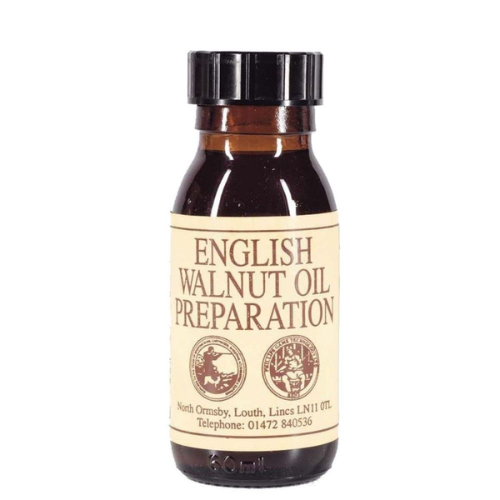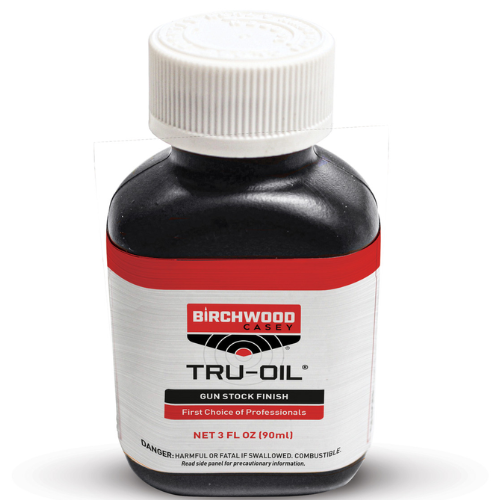When it comes to maintaining the classic look and feel of walnut gun stocks, choosing the right oil is a crucial decision.

With a myriad of options on the market, finding the perfect product that enhances the wood’s natural beauty while providing protection can be a challenge.
This article will guide you through the various options available and help you discover the ideal oil for your walnut gun stocks.
Whether you are a seasoned gunsmith or a firearm enthusiast looking to preserve your prized possession, this comprehensive overview will provide you with the information you need to make an informed choice.
Best oil for walnut gun stocks amazon
phillips walnut gun stock oil
When searching for the best oil finish for gun stocks, Phillips English Walnut Oil in a 60ml Glass Bottle certainly stands out. Coming from the reputable PHILIPS brand, it offers a combination of aesthetic enhancement and protection that is hard to overlook.

This 60-milliliter bottle, weighing just 0.11 kilograms, provides a convenient and efficient solution to rejuvenate walnut gun stocks. One of the standout features of this product is that a little goes a long way.
You don’t have to overdo it; simply spend a little time applying the oil, and if necessary, it can always be done a second time. This ensures that you can achieve the desired finish without the risk of over-application.
The oil not only revitalizes the appearance of the gun stock, making it look like new but also offers valuable protection from the elements. Whether you’re dealing with varying weather conditions or simply storing your firearm, this oil ensures that the beauty and integrity of the walnut remain intact.
Despite its many advantages, it’s worth noting that careful application is required to prevent over-application. This minor consideration aside, the Phillips English Walnut Oil offers everything one could ask for in preserving and enhancing walnut gun stocks.
Pros:
- Excellent Rejuvenation
- Element Protection
Cons:
- Potential Overapplication
In summary, for those seeking the best solution to maintain their walnut gun stocks, the Phillips English Walnut Oil is an exceptional choice. Its unique formulation and application ease make it a go-to product for gun enthusiasts and professionals alike.
Birchwood Casey Oil-Based Tru-Oil Stock Finish Bottle
If you’re seeking the best oil for walnut gun stocks, Birchwood Casey’s Tru-Oil Stock Finish Bottle could be an ideal solution. With a unique blend of linseed and natural oils, this product stands out for its fast drying properties and resilience to aging.

What’s immediately striking about this oil is its ability to bring out the richness and beauty of fine woods. It provides an even and rich color that not only enhances the appearance of your gun stock but also offers a tough, long-lasting finish.
This resilience against water damage, clouding, yellowing, or cracking adds to its appeal, making it a reliable choice for both new and old gun stocks.
The ease of application is another significant advantage. The directions are simple; using a clean cloth or wood stain brush, you can apply the oil in the direction of the grain. Its special formula allows for deep penetration into wood pores within just 5 minutes, creating a warm glow that adds character to your firearm.
Additionally, the long-lasting quality of Birchwood Casey’s Tru-Oil is noteworthy. These products remain usable until opened, without a printed expiration date. Once opened, the use-by date extends to an impressive 5 years, providing value and convenience for regular use.
Packed in a 3fl oz plastic bottle, this oil is a testament to Birchwood Casey’s dedication to quality, as evidenced by their reputation since 1948. Whether you’re a serious shooter, collector, or professional gunsmith, this product offers an appealing combination of aesthetics and functionality.
Pros:
- Fast Drying
- Long-Lasting
Cons:
- Plastic Bottle
In summary, Birchwood Casey’s Tru-Oil Stock Finish Bottle offers a fantastic option for those in search of the best oil for walnut gun stocks.
With its fast-drying, long-lasting properties, and rich color enhancement, it stands as a trusted choice in the market. The only minor drawback might be its plastic packaging, but that hardly takes away from the overall quality and effectiveness of this excellent product.
How To Care For A Walnut Gun Stock
Walnut gun stocks have long been admired for their rich beauty and functional durability. However, to maintain these features, proper care is essential. This article provides a comprehensive guide on caring for walnut gun stocks to ensure their longevity and attractiveness.
Selecting the Right Products
- Oils and Finishes: There are various oils and finishes specifically designed for walnut gun stocks. These include blends of linseed and natural oils that provide protection and rejuvenation. Researching and selecting a product that suits your gun stock’s needs is crucial for its long-term care.
- Brushes and Cloths: Selecting the right brushes and cloths is equally essential. Soft brushes that won’t scratch the surface and microfiber cloths that can absorb oils effectively are best for maintaining the stock’s appearance.
Proper Cleaning Techniques

Regular Cleaning
Routine cleaning is vital to keep the walnut gun stock looking new and functioning well. Wiping it down with a damp cloth to remove surface dirt and then applying the appropriate oil can make a significant difference in its appearance and functionality.
Deep Cleaning
Occasionally, you may need to perform a deep clean. This involves removing old oils and finishes and then reapplying new ones. Specialized products designed for deep cleaning will help in this process.
Avoiding Common Mistakes
Using too much water or harsh chemicals can harm the walnut. Always follow the product’s instructions and avoid over-scrubbing, which can damage the wood’s surface.

Is Linseed Oil Better Than Tung Oil?
Linseed oil and tung oil are both popular choices for finishing wood, including walnut gun stocks. Linseed oil is derived from flax seeds, whereas tung oil is obtained from the nuts of the tung tree.
They each have their own set of properties and advantages, so whether one is “better” than the other depends on the specific application and desired outcome.
Here’s we quickly provide to you an analysis to help you understand their differences:
Linseed Oil
Pros:
- Accessibility: Linseed oil is widely available and typically more affordable than tung oil.
- Flexibility: It is a more flexible finish, which means it can move with the wood, reducing the chances of cracking.
- Ease of Application: Linseed oil is generally easier to apply and can be wiped or brushed on.
- Finish: Provides a warm, rich finish that enhances the wood’s natural grain.
Cons:
- Drying Time: Linseed oil tends to dry more slowly, which can be a drawback in some applications.
- Maintenance: It might require more frequent reapplications over time.
- Susceptibility to Mildew: Linseed oil can be more susceptible to mildewing in humid environments.
Tung Oil
Pros:
- Durability: Tung oil is known for creating a hard and durable surface that resists scratches and wear.
- Water Resistance: It provides excellent water resistance, making it suitable for areas exposed to moisture.
- Finish: Tung oil offers a beautiful, glossy finish that’s considered more “natural” in appearance.
- Non–Toxic: Pure tung oil is non-toxic and food-safe, making it suitable for kitchen utensils or surfaces that come into contact with food.
Cons:
- Application: Tung oil can be more challenging to apply correctly, as it requires careful preparation and multiple coats.
- Availability and Cost: It may be more expensive and less readily available than linseed oil.
- Drying Time: Tung oil also dries slowly, similar to linseed oil, but it cures to a harder finish.
Conclusion
The right oil can make all the difference, providing not only protection but also enhancing the wood’s natural beauty.
While options like linseed oil and tung oil each have their unique qualities, the choice ultimately depends on individual preferences and specific needs.
Investing time in selecting the best oil for your walnut gun stock is a wise step in preserving its value and functionality.

